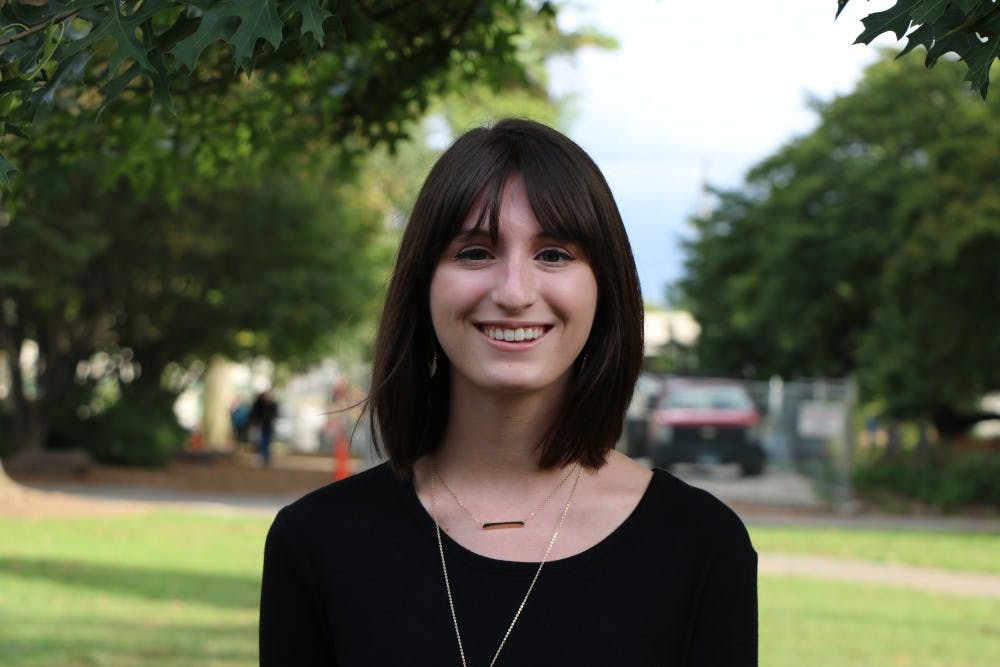In the last few years, the issue of food insecurity on college campuses has earned an increasing amount of attention from media outlets and administrators alike. At AU, the conversation has morphed into questions about the affordability of meal plans, as well as the use of the University’s food pantry.
Recently, I participated in the National Press Call for Campus Journalists on Growing Crisis of Hunger on College Campuses. This was a phone conference co-hosted by MAZON: A Jewish Response to Hunger and the Hope Center for College, Community and Justice on Feb. 7.
From information shared during this event, it became clear that too many students who are working hard to earn degrees are forced to compromise their food security. Like Dr. Sara Goldrick-Rab, the founder of the Hope Center, I fear the normalization of “being hungry” and food insecurity in college.
It is important to note that there is a difference between being hungry and being food insecure. The USDA defines food insecurity in two ways: there is “low food security,” which does not involve hunger, then there is “very low food security,” which does involve hunger and is defined as “reports of multiple indications of disrupted eating patterns and reduced food intake.”
While AU has identified food insecurity as a problem on campus and tried to address it by opening a food pantry called The Market in September 2017, I worry about the statements made regarding the pantry. According to an article about the pantry, Fanta Aw, the University’s vice president of campus life and inclusive excellence, “believes that The Market is a more systematic way to help students and hopes that this will give students much easier access.”
Labeling the food pantry as a systemic change may unintentionally slow or stop more necessary changes, such as the need for AU’s financial aid office to guide eligible students through the difficult application process for SNAP, or food stamp, benefits.
Food pantries are a first step. Samuel Chu, the National Organizer for MAZON, said during the phone conference that the “first step” universities make does not have to be revolutionary in order to make a change. Yet, he added, administrators should not stop after the first step, either.
The government is not responsible for helping prospective beneficiaries apply for SNAP benefits, despite the difficult process the application entails. It must fall to financial aid offices to integrate and streamline the process for students, informing them about how to apply for benefits in case their financial aid package is insufficient to meet their needs.
Combating food insecurity also requires more than institutional changes: it requires student activism. Student Government should consider holding public forums on the topic of food insecurity to identify and mobilize students who have either a personal or passionate stake in the issue.
By opening a more transparent dialogue, the stigma surrounding asking for help, as cited by Chu, can be dismantled. When students visibly and openly care about an issue, it can result in an administrative response. For example, student activism heavily influenced the decision to not increase the minimum prices for meal plans next year.
AU Dining and Auxiliary Services must also address the issue of food insecurity within the 2019-20 academic year meal plan proposals. Administrators should be wondering: who will a price increase really benefit if many students cannot even afford the high prices now? How can increased revenue be leveraged to support vulnerable students?
According to Dr. Goldrick-Rab, little is known about food insecurity at private universities nationwide. In spring 2016, AU participated in the National Survey of Student Engagement. That survey addresses how many students worry about how they will afford the rising prices of college tuition and the expenses associated with it, but not food insecurity directly.
One of the largest national collegiate surveys is the National Postsecondary Student Aid Survey, which costs millions of dollars to run every four years. Universities get to decide if they would like to participate in the survey. AU, as an institution, must participate in surveys regarding food insecurity so that more information can be gathered about the extent of this problem.
Students should never have to make a choice between food and textbooks, especially if there is an evident third option: for universities to step up and take responsibility for their students in their journey towards thriving both physically and academically.
Stephanie Mirah is a sophomore in the School of Communication and a columnist for The Eagle.
This article originally appeared in The Eagle's March 2019 print edition.





